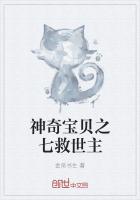I left my dinner still unfinished, paying for the whole, of course, and tossing the waiter a gold piece. I was reckless; I knew not what was mine and cared not: I must take what I could get and give as I was able; to rob and to squander seemed the complementary parts of my new destiny. I walked up Bush Street, whistling, brazening myself to confront Mamie in the first place, and the world at large and a certain visionary judge upon a bench in the second. Just outside, I stopped and lighted a cigar to give me greater countenance; and puffing this and wearing what (I am sure) was a wretched assumption of braggadocio, I reappeared on the scene of my disgrace.
My friend and his wife were finishing a poor meal--rags of old mutton, the remainder cakes from breakfast eaten cold, and a starveling pot of coffee.
"I beg your pardon, Mrs. Pinkerton," said I. "Sorry to inflict my presence where it cannot be desired; but there is a piece of business necessary to be discussed."
"Pray do not consider me," said Mamie, rising, and she sailed into the adjoining bedroom.
Jim watched her go and shook his head; he looked miserably old and ill.
"What is it, now?" he asked.
"Perhaps you remember you answered none of my questions," said I.
"Your questions?" faltered Jim.
"Even so, Jim. My questions," I repeated. "I put questions as well as yourself; and however little I may have satisfied Mamie with my answers, I beg to remind you that you gave me none at all."
"You mean about the bankruptcy?" asked Jim.
I nodded.
He writhed in his chair. "The straight truth is, I was ashamed," he said. "I was trying to dodge you. I've been playing fast and loose with you, Loudon; I've deceived you from the first, I blush to own it. And here you came home and put the very question I was fearing. Why did we bust so soon? Your keen business eye had not deceived you. That's the point, that's my shame; that's what killed me this afternoon when Mamie was treating you so, and my conscience was telling me all the time, Thou art the man."
"What was it, Jim?" I asked.
"What I had been at all the time, Loudon," he wailed; "and I don't know how I'm to look you in the face and say it, after my duplicity. It was stocks," he added in a whisper.
"And you were afraid to tell me that!" I cried. "You poor, old, cheerless dreamer! what would it matter what you did or didn't?
Can't you see we're doomed? And anyway, that's not my point.
It's how I stand that I want to know. There is a particular reason. Am I clear? Have I a certificate, or what have I to do to get one? And when will it be dated? You can't think what hangs by it!"
"That's the worst of all," said Jim, like a man in a dream, "I can't see how to tell him!"
"What do you mean?" I cried, a small pang of terror at my heart.
"I'm afraid I sacrificed you, Loudon," he said, looking at me pitifully.
"Sacrificed me?" I repeated. "How? What do you mean by sacrifice?"
"I know it'll shock your delicate self-respect," he said; "but what was I to do? Things looked so bad. The receiver----" (as usual, the name stuck in his throat, and he began afresh).
"There was a lot of talk; the reporters were after me already; there was the trouble and all about the Mexican business; and I got scared right out, and I guess I lost my head. You weren't there, you see, and that was my temptation."
I did not know how long he might thus beat about the bush with dreadful hintings, and I was already beside myself with terror. What had he done? I saw he had been tempted; I knew from his letters that he was in no condition to resist. How had he sacrificed the absent?
"Jim," I said, "you must speak right out. I've got all that I can carry."
"Well," he said--"I know it was a liberty--I made it out you were no business man, only a stone-broke painter; that half the time you didn't know anything anyway, particularly money and accounts. I said you never could be got to understand whose was whose. I had to say that because of some entries in the books----"
"For God's sake," I cried, "put me out of this agony! What did you accuse me of?"
"Accuse you of?" repeated Jim. "Of what I'm telling you. And there being no deed of partnership, I made out you were only a kind of clerk that I called a partner just to give you taffy; and so I got you ranked a creditor on the estate for your wages and the money you had lent. And----"
I believe I reeled. "A creditor!" I roared; "a creditor! I'm not in the bankruptcy at all?"
"No," said Jim. "I know it was a liberty----"
"O, damn your liberty! read that," I cried, dashing the letter before him on the table, "and call in your wife, and be done with eating this truck "--as I spoke, I slung the cold mutton in the empty grate--"and let's all go and have a champagne supper. I've dined--I'm sure I don't remember what I had; I'd dine again ten scores of times upon a night like this. Read it, you blaying ass! I'm not insane. Here, Mamie," I continued, opening the bedroom door, "come out and make it up with me, and go and kiss your husband; and I'll tell you what, after the supper, let's go to some place where there's a band, and I'll waltz with you till sunrise."
"What does it all mean?" cried Jim.
"It means we have a champagne supper to-night, and all go to Napa Valley or to Monterey to-morrow," said I. "Mamie, go and get your things on; and you, Jim, sit down right where you are, take a sheet of paper, and tell Franklin Dodge to go to Texas. Mamie, you were right, my dear; I was rich all the time, and didn't know it."















